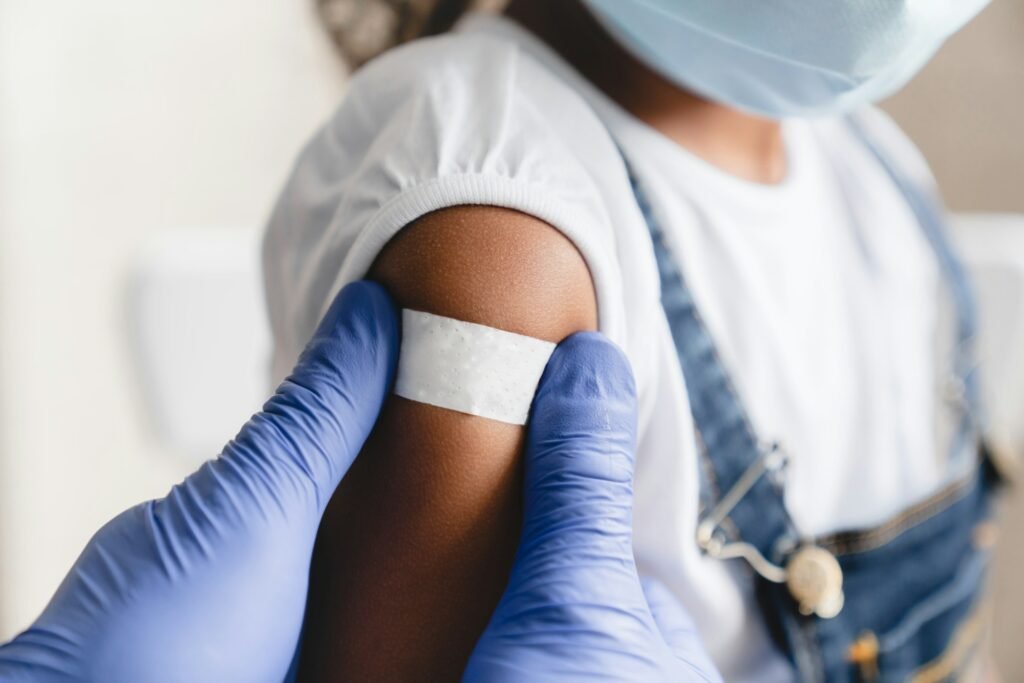Intramuscular (IM) Shots

Intramuscular (IM) Shots
Intramuscular (IM) Shots are a medical procedure involving the direct injection of medications, nutrients, or vaccines into muscle tissue. This administration method allows for rapid and efficient absorption of substances into the bloodstream, offering a targeted approach for addressing various health needs. While primarily recognized within the conventional medical model, Intramuscular Shots have potential applications as part of a holistic wellness strategy when administered responsibly and in accordance with a healthcare professional’s guidance.
What are Intramuscular (IM) Shots?
Intramuscular Shots involve a trained healthcare professional using a needle and syringe to inject a substance directly into a specific muscle. Common injection sites include the deltoid muscle in the upper arm, the vastus lateralis muscle in the thigh, and the gluteal muscles in the buttocks. Muscle tissue offers ample blood supply, facilitating rapid absorption for immediate or sustained release, depending on the substance administered.
How Can Intramuscular (IM) Shots Help You?
Intramuscular Shots offer a targeted delivery method for:
- Medications: When oral administration is ineffective or impossible, IM shots can deliver medications for rapid action.
- Vaccinations: Many vaccines are administered via IM injection, offering protection against various infectious diseases.
- Nutritional Supplementation: IM shots can replenish vitamin or mineral deficiencies when oral supplementation is insufficient.
- Hormone Replacement Therapy: IM administration may be used to deliver bioidentical hormones for therapy.
- Pain Management: Injections containing pain relievers or corticosteroids can offer localized relief.
What are Intramuscular Shots Good For?
Intramuscular Shots are used to address:
- Acute Medical Conditions: When rapid absorption of medication is crucial, as in allergic reactions or severe infections.
- Immunizations: IM vaccinations help prevent diseases like measles, polio, and influenza.
- Nutrition & Vitamin Deficiencies: IM injections of B12 or iron address deficiencies when digestive issues hinder oral absorption.
- Chronic Conditions: Some medications for autoimmune diseases or pain management may be administered through IM shots.
- Hormonal Imbalances: Hormones for conditions like menopause or low testosterone may be given by IM injection.
Benefits of Intramuscular (IM) Shots
Potential benefits include:
- Rapid Absorption: Compared to oral administration, IM shots ensure a faster onset of action for medications.
- Targeted Delivery: IM Shots allow for precise delivery to a specific muscle for localized treatment.
- Versatility: Various medications, vitamins, and vaccines can be administered via IM injection.
- Bypassing the Digestive System: IM delivery is beneficial when oral intake is impaired or medications are poorly absorbed orally.
- Sustained Release: Some intramuscular injections offer a gradual, sustained release of medication over time.
What to Expect: The IM Shot Procedure
Here’s what to expect:
- Consultation: Discussion with a healthcare professional will determine if an IM shot is appropriate.
- Preparation: The provider will clean the injection site and prepare the syringe with the prescribed substance.
- Injection: The needle is inserted at a proper angle, and the medication is slowly injected into the muscle.
- Aftercare: The injection site may be slightly sore for a short period. Healthcare providers will monitor for potential side effects.
Similar Modalities to Intramuscular (IM) Shots
Alternatives to IM Shots include:
- Oral Administration: Taking medications by mouth is the most common method, but absorption may be slower or less complete.
- Subcutaneous Injections: Delivery of substances into the fat layer under the skin, often used for self-administered insulin.
- Intravenous (IV) Therapy: Direct infusion of fluids, medications, or nutrients into the bloodstream for a rapid effect.
Final Thoughts
Intramuscular Shots offer a valuable tool for administering medications, vaccines, and specific nutrients. While primarily used within a conventional medical setting, IM shots may have a potential role in certain aspects of holistic wellness when prescribed by a qualified healthcare professional as part of a comprehensive healthcare plan. It’s essential to consult with your doctor to determine if Intramuscular Shots align with your health needs and if it is the most appropriate delivery method for a given treatment or supplement.
Scientific References
- Nicoll, L. H., & Hesby, A. (2002). Intramuscular injection: An integrative research review and guideline for evidence-based practice. Applied Nursing Research, 15(3), 149–162. [DOI: 10.1053/apnr.2002.34141]
- Poland, G. A., Borrud, A., Jacobson, R. M., McDermott, K., Wollan, P. C., Brakke, D., & Ovsyannikova, I. G. (2011). Development of a patch-based influenza vaccine. Biologicals, 39(6), 339–344. [DOI: 10.1016/j.biologicals.2011.09.008]
- Shannahan, J., & Ferioli, E. (2022). Intramuscular injections. In StatPearls [Internet]. Treasure Island (FL): StatPearls Publishing.
Recommended Reading
- Workman B. (1999). Safe injection techniques. Nursing Standard (through 2013), 13(39), 47-53.
- World Health Organization. (2004). WHO best practices for injections and related procedures toolkit. World Health Organization.
- Centers for Disease Control and Prevention (CDC) Vaccine Storage and Handling Toolkit: https://www.cdc.gov/vaccines/hcp/admin/storage/toolkit/index.html
FAQ: Intramuscular (IM) Shots
Are Intramuscular Shots safe?
When performed correctly by a trained professional, IM shots are generally safe. There may be minor side effects like injection site pain.
Who can administer Intramuscular Shots?
IM Shots should only be administered by licensed healthcare professionals like doctors, nurses, or pharmacists.
Do Intramuscular Shots hurt?
Most IM injections cause minimal discomfort. Factors like needle size and the medication can influence the experience.
Can I self-administer Intramuscular Shots?
Generally, IM shots are given by healthcare providers. Self-administration is only advised in specific situations under direct guidance.
How do I know if an Intramuscular Shot is right for me?
Always consult with your healthcare provider to determine the appropriate treatment and administration method for your needs.
Related Practitioners
Kim McIntire
The Neurodivergent Healer & Hypnotist
- Carson City, Nevada, United States
- +1 (775) 240-6381
My name is Kim McIntire, and my transformative journey in holistic wellness commenced 22 years ago during my time at… Read More
Ella Ringrose
Awaken Your Inner Power, Align with Your Purpose
- Toronto, Golden Horseshoe, Ontario, Canada
- +1 (555) 555-0000
Ella Ringrose is a spiritual guide dedicated to empowering individuals on their spiritual journeys. Through her YouTube channel, she shares… Read More
Ali Campbell
Neuro Linguistic Programming Expert
- Los Angeles, Los Angeles County, California, United States
- +44 (2) 555-5555
As information is rapidly changing, we encourage you to continue to stay informed. Please visit our Coronavirus Resource Center, Healthgrades… Read More























